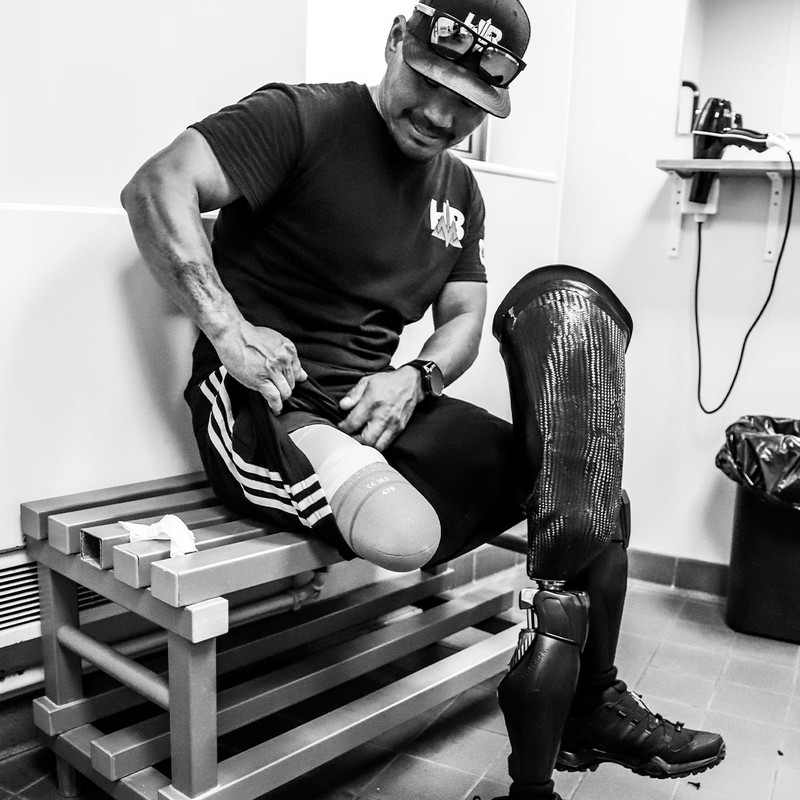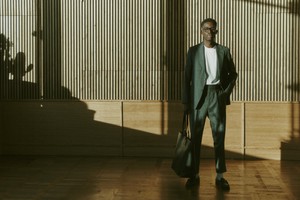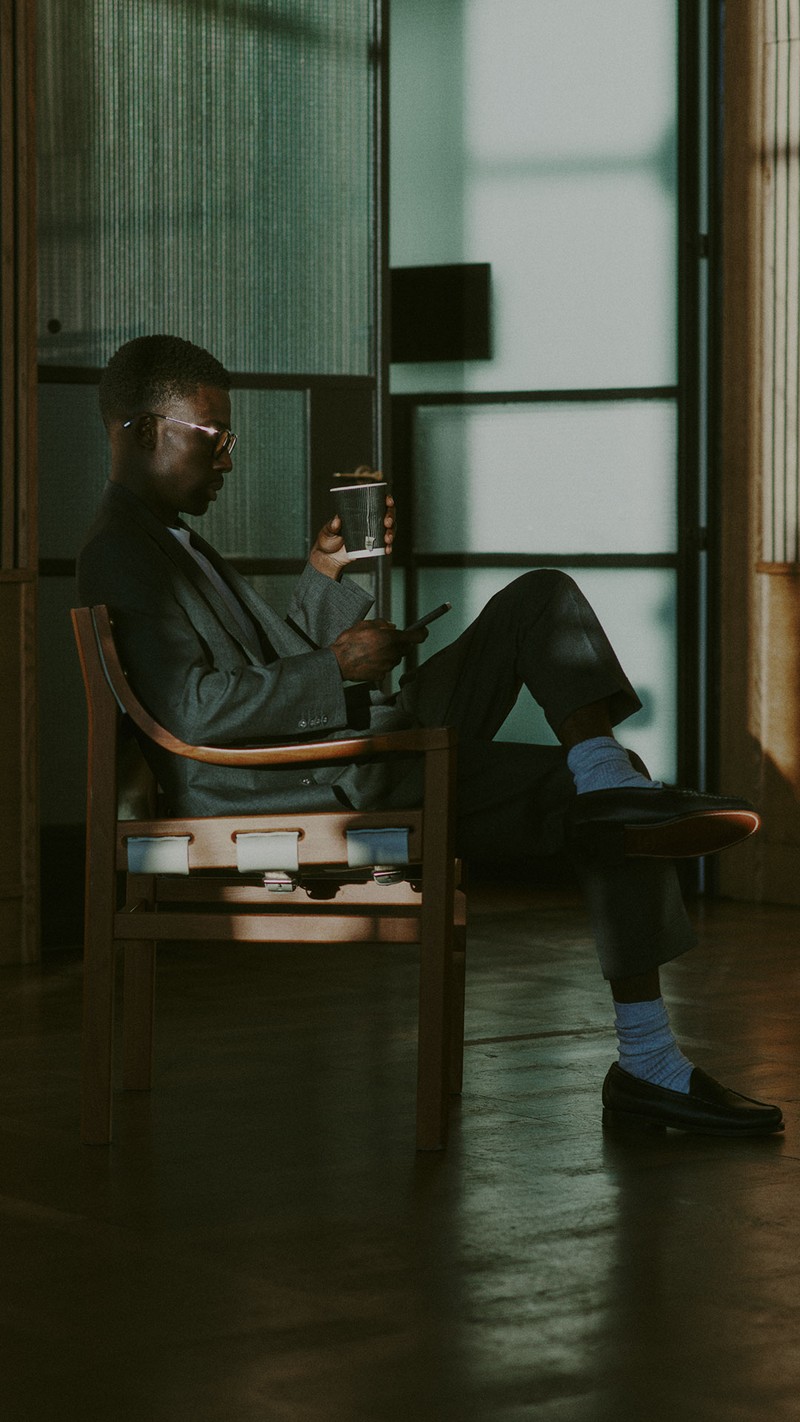Meet Hari Budha Magar: The First Double Amputee To Climb Everest
Hari Budha Magar
I was born in Nepal and joined the Gurkha regiment when I was 19. In 2010 I was serving with the British Army in Afghanistan when I stepped on an improvised explosive device (IED). I lost both my legs above the knee and struggled to come to terms with my disability.
I thought my life was over. Growing up in Nepal, you see that disabled people are not treated well. My recovery was extremely hard, and I didn’t have much understanding of disabilities – I’d never seen amputees or disabled people living independently. I thought my wife might leave me, but she and my family have been incredibly supportive. We had to figure out a way for me to live my life.
I found there was some magic in being outdoors. Since my accident I’ve tried skydiving, kayaking and rock climbing. Training with my good friend Krish, I’ve taken on various mountaineering challenges including Mont Blanc, Ben Nevis and Kilimanjaro.
For Nepalese people there are three things we are proud of: the Lord Buddha, the Gurkhas and Mount Everest. I grew up looking at the mountain and was fascinated by it throughout childhood. Our next challenge had to be the tallest peak in the world.
In 2017, the Nepalese government banned amputees and visually impaired people from climbing mountains over 6,500ft, so Mount Everest was off the cards. We had to go to the Supreme Court to fight the case. When the rule was overturned, we didn’t raise enough money in 2019 – then Covid hit. In 2022 we prepared and, six years after the ban, we flew to Nepal to start the challenge.
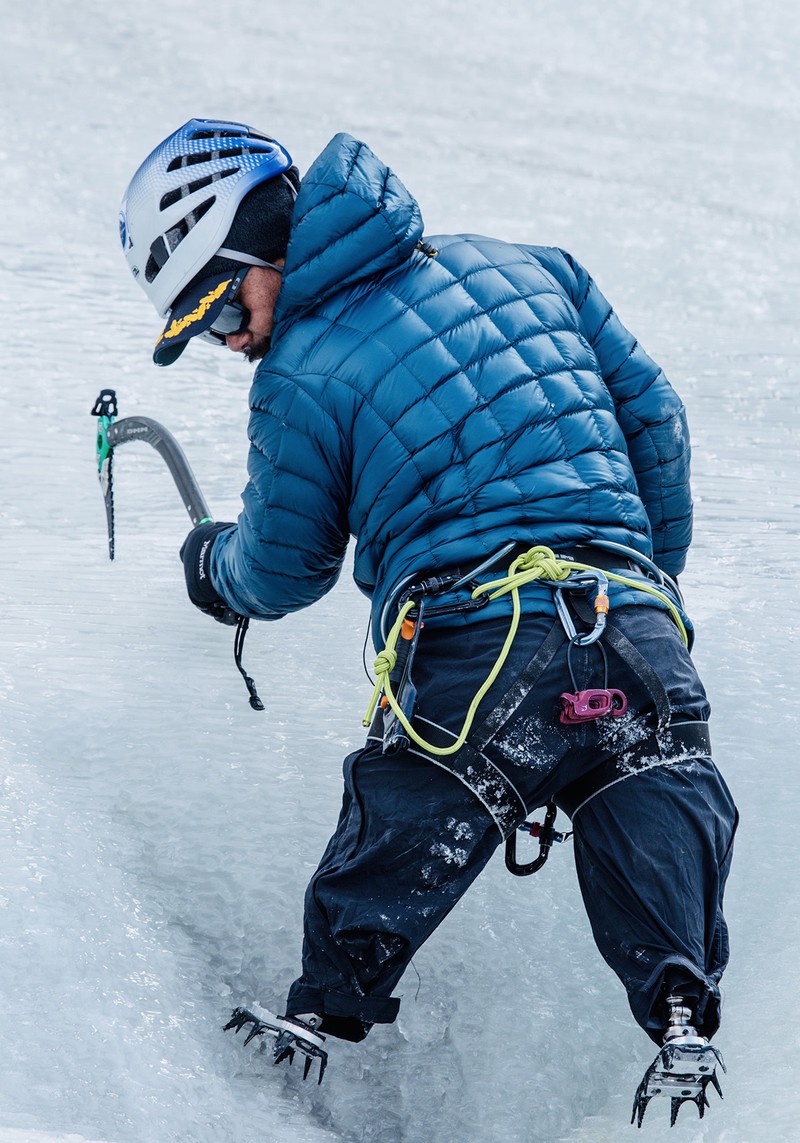
2023 has been Mount Everest’s deadliest season. As of last month 17 people have died and only half of all climbers have reached the summit. We knew we were dealing with tricky conditions, so we had to prepare for every eventuality with the right equipment. We had to create special prosthetics that could climb ice and snow as these didn’t even exist. It was a worldwide process: some of the parts came from New York, they were made in Orlando, and they were installed in India.
We were a team of 26 on the mountain. That included porters and eight Sherpas – four of who were able to summit with me. My military background helped me get through. Discipline and survival skills are key, but having the right mindset to complete a challenge of that scale is incredibly hard. There were a couple of moments when we were in danger. We ran out of oxygen a couple of times and battled the extreme weather. We also passed dead bodies, which was awful and hammered home the potential dangers.
Reaching the summit, I gave the team high fives and cried like a baby. I was so grateful to have made it and to have the team around me. Everyone worked so hard and had their individual role to play. I thought of my family, especially my youngest son who’s only ten and was so scared for me to go climb Everest. I wanted to show him, and millions of children like him, that you can do anything in this life.
The descent was just as dangerous. At one point my oxygen ran out and some of our team had to find us to deliver more. I was bumping down on my bum with 30 or 40 minutes of oxygen left and two to three hours to go. I felt all of my energy draining out of my body. My fingers were tingling and my stumps were cold. We managed to change to a new oxygen tank, and I immediately felt my energy coming back. I then ran out of oxygen again further down and two of our Sherpas had to continue without any, which can be incredibly dangerous. Luckily, we all made it back.
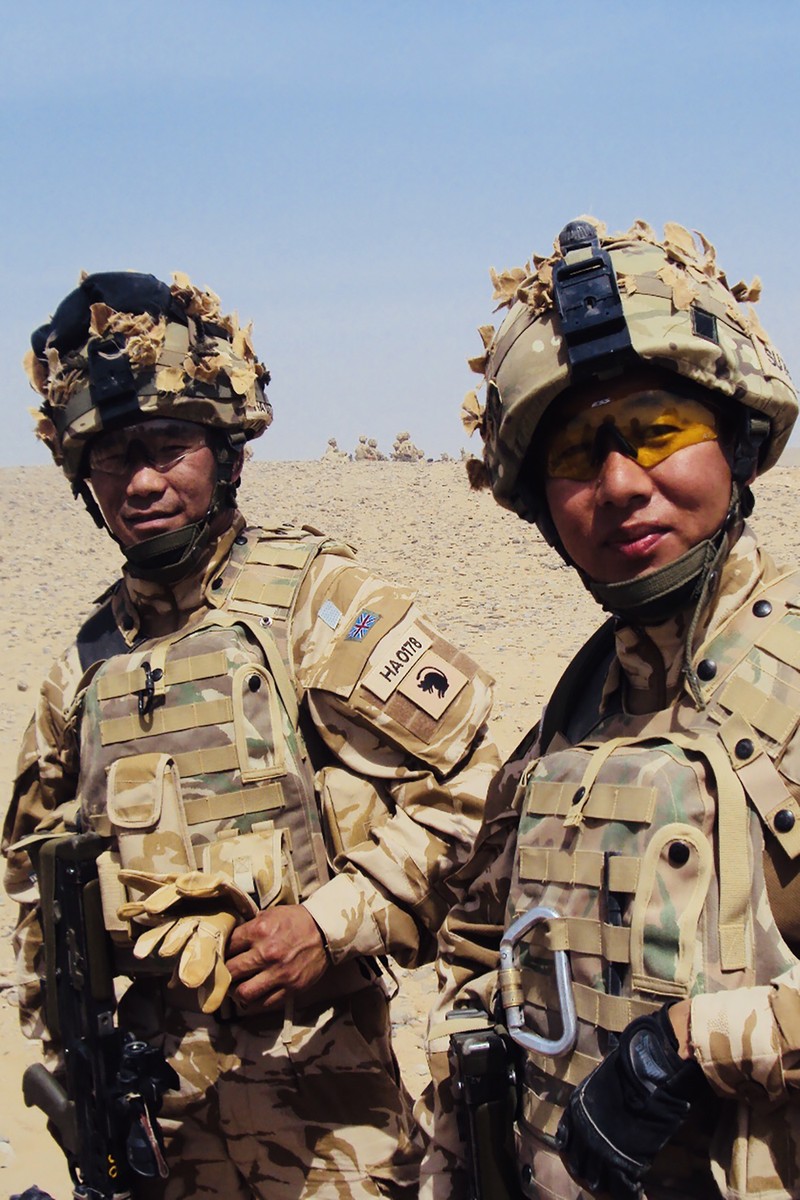
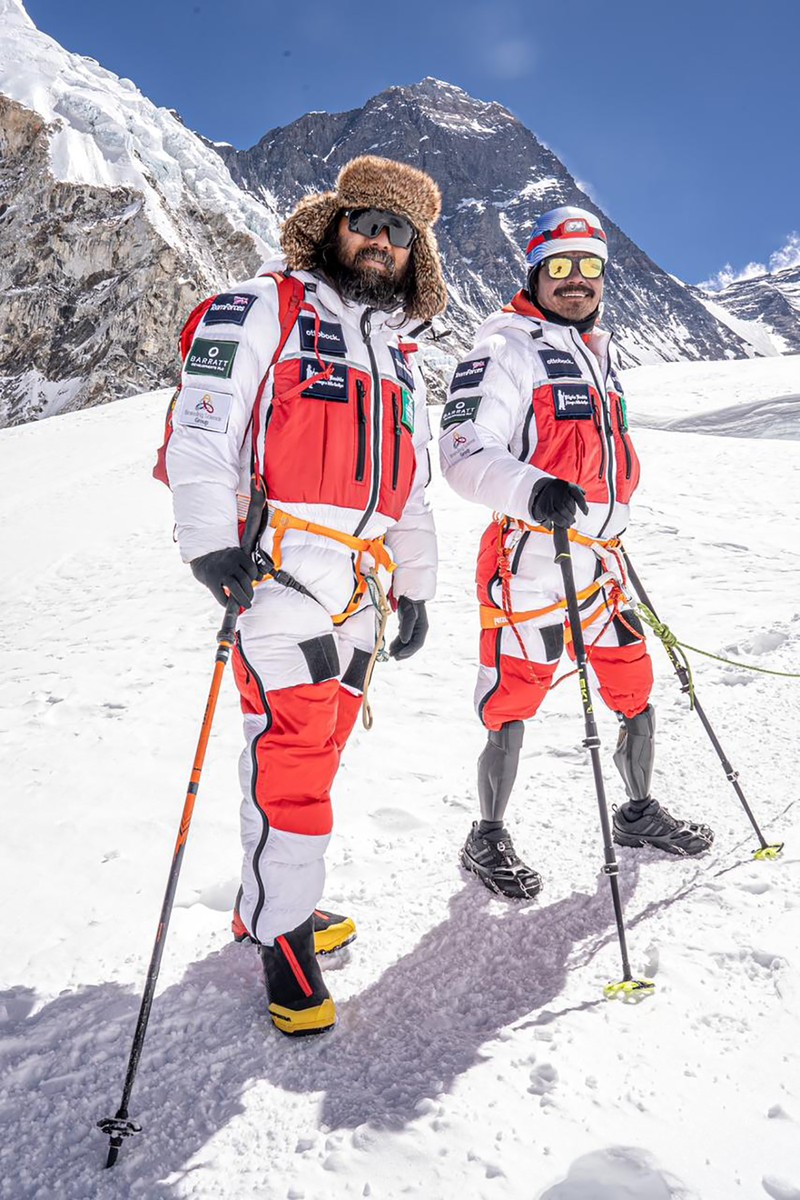
I didn’t go on the expedition to make history. I went to raise awareness for disabilities. The government who banned me from climbing the mountain back in 2017 came to welcome me at the airport with 100 cameras. I stayed in Nepal for a week and met numerous ministers, the president, vice-president and speaker of the house. I hope I changed their perceptions on disability so they can turn their prejudice into action to help and support disabled people. They shouldn’t be banned or ignored or hidden in the corner – they should be supported and celebrated.
The years after my accident were awful, but I believe that things happen for a reason. If I hadn’t been in Afghanistan, I wouldn’t be in the position I’m in now, having climbed Everest and being able to raise awareness for disabled people around the world. When awful accidents happen, you have to continue living and make the most of your situation. Only we can decide who we want to be tomorrow.
If you want to challenge yourself, just do it. Being disabled doesn’t mean your life stops or you have nothing to give to society. It’s the opposite. I’ve met some very ignorant people, but I’ve mainly met amazing people who have supported and helped me. Many disabled people and veterans have taken on their own challenges and achieved amazing things. Anything can be done.
Krish Thapa
I was born in Nepal and grew up as a Buddhist monk. For young men, the number one thing you can do is join the Gurkhas and serve with the British Army. I was 19 when I joined the regiment before moving to the SAS. There were 20 recruits and only two of us made it – it was an incredibly physically and mentally demanding role. I loved it and spent 26 years in service.
When I left service, I did a lot of research on the mind and mental health with Cambridge professors. When you’ve seen war and unimaginable things, you have to shift your perception and mindset. I then taught mountain skills to new recruits while helping ex-servicemen with PTSD and other mental health issues. A few years later I reconnected with Hari. He asked if I thought he could climb Mount Everest. At this point he was struggling to get out of bed and move around his home, so I said, “Let’s give it a go.” The good thing about Hari is that he has a military mindset and never gives up.
/https%3A%2F%2Fsw18.sheerluxe.com%2Fsites%2Fslman%2Ffiles%2Farticles%2F2023%2F06%2Fimg-20230512-wa0007.jpg?itok=36I1js6T)
Our training started six years ago. We took small steps and planned a big challenge every six months, like climbing Mont Blanc and Kilimanjaro. When the Nepalese government put the climbing ban in place it was a huge blow, but Hari managed to get it overturned. Then we had to get the right team together and make sure we had the best equipment. I’ve led expeditions on Everest a few times before, so I knew what we were getting ourselves into.
The conditions were really tough. Winds were strong and it was -40°C at times. I’ve been going to Everest for 40 years and this year has had some of the trickiest conditions I’ve seen – partly due to climate change. The biggest concern was Hari getting frostbite. We had to prevent his stumps from freezing. The second concern was the weather. We waited at basecamp for 18 days because it was too cold.
As a leader you have to remain calm and level-headed at all times, while thinking of everything can go wrong. It’s problem solving on a huge level with various human factors involved. At 1,500m I had to make a decision to leave behind some of the team to preserve the remaining oxygen. You also have to limit the number of people in the ‘death zone’ which is 8,000m and above. Only five people were allowed to summit while the rest acted as a reserve if something went wrong – we had our own team of rescuers on standby. We were very lucky, and our plan came to fruition. No double amputee has ever climbed Everest and few people will do it again.
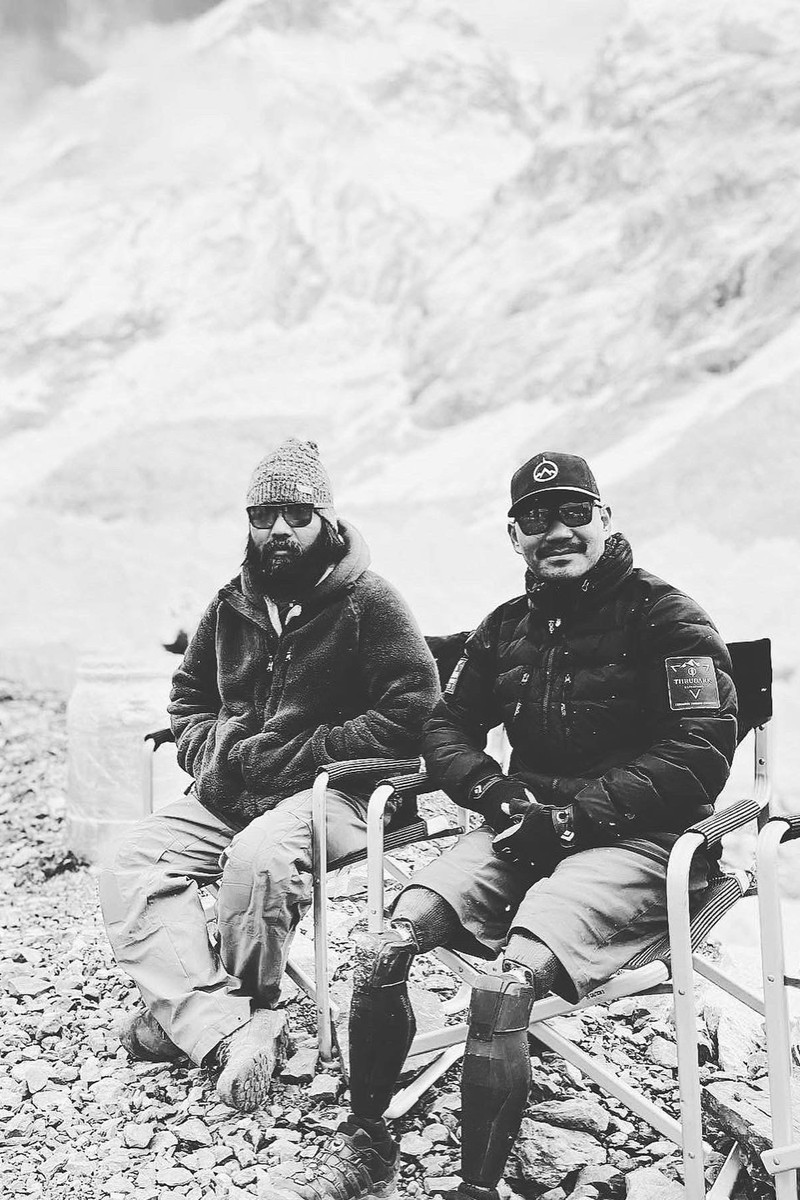
In an extreme environment like Everest, you have to listen to nature and adopt the right mindset. Meditation is key. I’ve been practising meditation for decades as it’s a powerful tool. It can ground you, keep you calm and increase your self-awareness.
Hari’s achievement is huge for the disabled community. I hope it will change perceptions and help people to realise that mindful strength can be even more powerful than physical. For the last few years I’ve been working with various disabled charities to help people on treks, walking trips and larger expeditions. I’ve worked with Parkinson’s UK and amputees around the world who want to climb mountains. If we can change people’s experiences and give them hope, that’s the true meaning of humanity.
Hari is raising funds for five charities that helped him through his rehabilitation. To donate – and for more information on the expedition – visit HariBudhaMagar.com
DISCLAIMER: We endeavour to always credit the correct original source of every image we use. If you think a credit may be incorrect, please contact us at [email protected].
